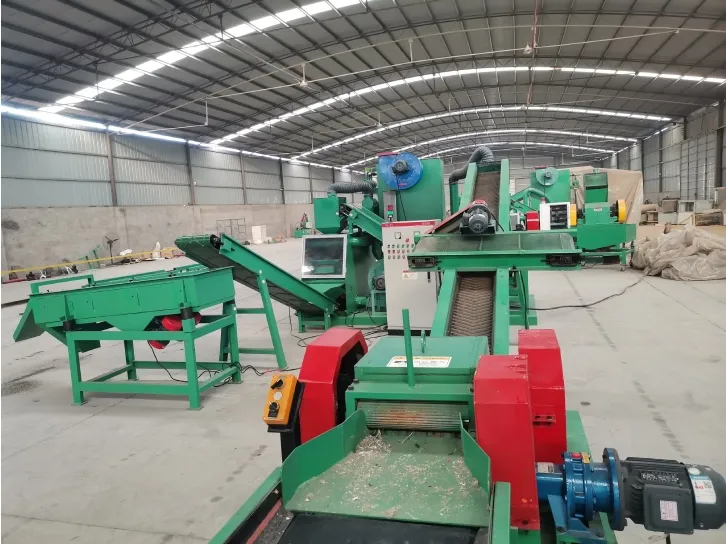

සැප්. . 01, 2024 22:58 Back to list
Scrap Processing Plant Transforming Waste into Resources
In today's world, where sustainability and environmental conservation have become paramount, scrap processing plants play a crucial role in the efficient recycling and management of waste materials. These facilities are designed to process various types of scrap, including metal, plastic, and electronic waste, transforming what was once considered trash into valuable resources.
The operations within a scrap processing plant typically begin with the collection of scrap materials from various sources, including industrial operations, household waste, and construction sites. Once collected, these materials are sorted based on their type and quality. This initial sorting is vital as it helps maximize the efficiency of the recycling process. Advanced technologies, such as conveyor belts and automated sorting systems, are often employed to streamline this process. These systems not only save time but also minimize human error, ensuring that each type of scrap is handled appropriately.
After sorting, the next step involves the processing of materials. For metals, this may include shredding, melting, and purifying to create high-quality ingots or alloy products. Plastic waste, on the other hand, is often granulated and then reprocessed into new plastic products. Electronic waste is particularly complex, as it contains valuable metals, plastics, and hazardous materials. Specialized techniques are necessary to recover these elements safely, ensuring that toxic substances are managed responsibly.

One of the most significant advantages of scrap processing plants is their contribution to the circular economy. By recycling scrap materials, these facilities reduce the need for virgin resources, thus conserving natural resources and minimizing environmental pollution. Furthermore, recycling requires less energy compared to the production of new materials, which helps to reduce greenhouse gas emissions. This aspect is particularly crucial in combating climate change, as industries increasingly strive to lower their carbon footprints.
Economic benefits also accompany the operations of scrap processing plants. These facilities create jobs, from sorting and processing to administration and logistics. Moreover, they generate revenue through the sale of recycled materials, providing businesses with an incentive to adopt more sustainable practices. As global demand for recycled materials rises, scrap processing plants are poised to play an even more vital role in the economy.
Education and awareness are essential in promoting the importance of recycling and the role of scrap processing plants. Communities can significantly contribute to the success of these facilities by properly segregating waste and supporting local recycling initiatives.
In conclusion, scrap processing plants serve as pivotal hubs in the recycling industry, converting waste into valuable materials and significantly benefiting the environment and economy. As we progress towards a more sustainable future, the importance of these plants will continue to grow, making them indispensable in our quest to manage waste and conserve resources effectively.
Latest news
Troubleshooting Common Eddy Separator Problems
NewsJul.04,2025
The Role of Metal Recycling Plants in Circular Economy
NewsJul.04,2025
The Impact of Recycling Line Pickers on Waste Management Costs
NewsJul.04,2025
Safety Features Every Metal Shredder Should Have
NewsJul.04,2025
How Industrial Shredders Improve Waste Management Systems
NewsJul.04,2025
How Cable Granulators Contribute to Sustainable Recycling
NewsJul.04,2025